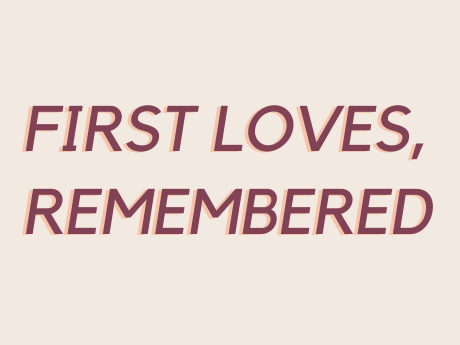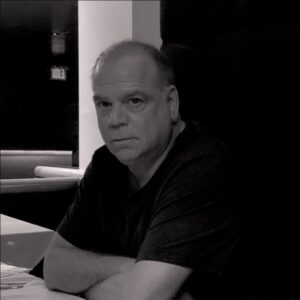First Loves, Remembered
First Loves, Remembered: Peter Gizzi on Michael Gizzi’s poem “Requiem in March”

Requiem in March
Father when I heard you were gone
I walked in my sleep
like a gun looking for a head
was it wrong to think you were indestructible
if it was only a plane crash
why didn’t you walk from the wreckage
after three days of rain
the earth is drenched
and shiny like an airplane
I think of birds that bathe
in puddles on your grave
biting water finding a life
and those that die
lying like airplanes
in the forest
I have dug ditches
in my skull
for each of them
"Requiem in March" from Collected Poems (The Figures, 2015) reprinted with permission of Peter Gizzi.
Twenty years ago, the Poetry Society published a series called First Loves in which we asked distinguished poets, including W.S. Merwin, Ntozake Shange, and Robert Creeley, to reflect on the poems that first captured their imaginations. The series eventually became a book, edited by Carmela Ciuraru, titled First Loves: Poets Introduce the Essential Poems that Captivated and Inspired Them. Here, we revisit that question with a new generation of poets, revealing how poetic influences both endure and change.
Peter Gizzi on Michael Gizzi's poem "Requiem in March"
In March 1972, I sat in the den watching a movie with my mother while we waited for my father to come home from a business trip. I was 12. An announcement suddenly interrupted the movie: a plane had crashed in Albany. The broadcast cut to the crash site and showed a ruined house that the plane had demolished. I knew at once that it was the plane my father was on. Although we waited hours to find out the news, I knew in my heart he was gone. The instantaneous shock I felt and my new understanding of the absolute irrevocability of the world cut me, deep. That loss opened a wound I have carried my entire life. My father was my world in my childhood, the person I loved most. But childhood ended that night. I was filled with disbelief and kept going over what had happened in my mind, trying to create a different outcome. My grief grew as true and solid as an oak tree, and I lived in total outrage that such a thing could happen. Everything people said to comfort me only made me angry at how empty it sounded.
A year later, my eldest brother, the late poet Michael Gizzi, wrote an astonishing poem; he was 23. The poem, “Requiem in March,” contains the lines, “if it was only a plane crash / why didn’t you walk from the wreckage?” Those lines floored me. Their words amazed me. What Michael had written was the only true thing that could have been said about what had happened. It was so true, in fact, that when I read those words a light went on that still burns. With majesty and mystery, poetry can say the truth and transform reality while posing the hardest questions. Wasn’t my father bigger than a plane crash? I thought so. Michael’s lines placed me at a profound threshold and I began reading poetry every day, as I have done ever since. It took years for me to find a voice, but I have found one and it continues to surprise me. What are we actually writing throughout our lives? I have come to realize that in my case I have been writing my personhood. My poetry is who I am down to the core, even though I do not write autobiographical verse. I have built a syntax and a language to understand myself in the world. The feeling is like looking up at the starry night sky and realizing that I am just a piece of a vast, unstable, multiplying narrative, that I am neither bigger nor smaller than anything: I am the right size, tuned in and connected to a multiplicity and a mystery. Poetry has given me a life, a way to live.


